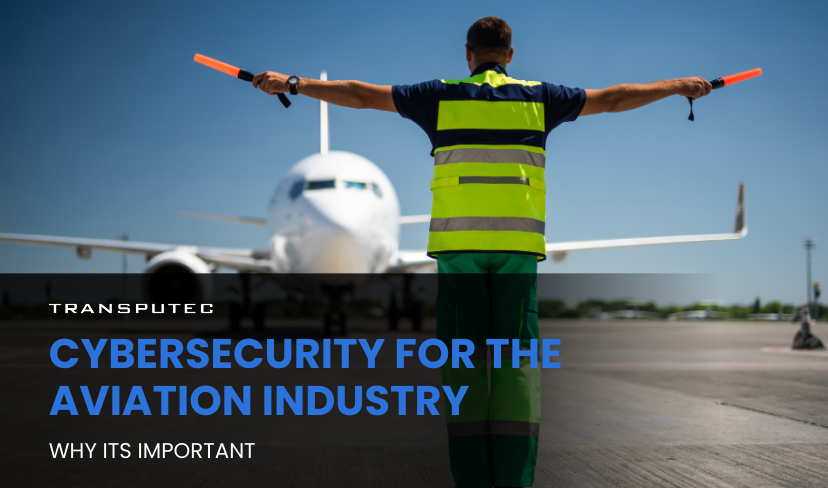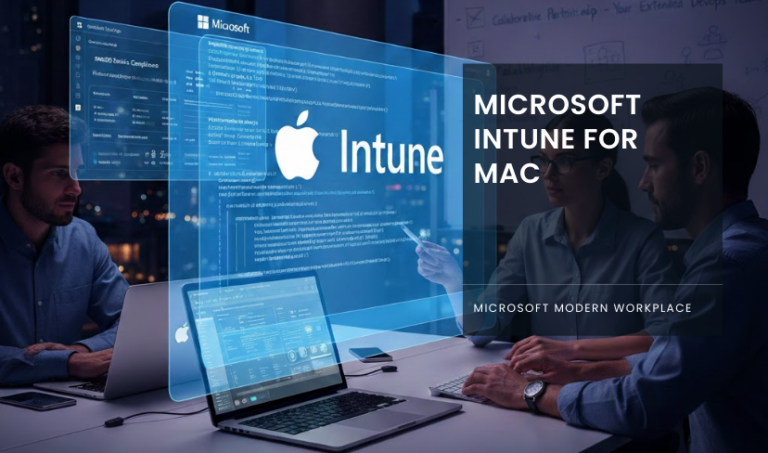Written by KRITIKA SINHA | MARKETING
Flight delays are frustrating. But imagine being a pilot grounded not by weather, but by a cyberattack disabling critical aviation systems. Or worse—passenger data stolen mid-flight, causing a cascade of regulatory and reputational nightmares. For aviation professionals, this isn’t sci-fi—it’s a real and growing threat.
Cyberattacks on the aviation sector have surged by over 530% since 2020, according to a study by Eurocontrol. From airline booking systems to air traffic control and maintenance software, every digital entry point is a potential vulnerability. Yet, despite the critical importance of cybersecurity, many aviation companies are still flying blind.
In this blog, we’ll explore why cybersecurity is critical for the aviation industry, uncover specific threats targeting aviation, examine real-world breaches, and share actionable insights to protect your operations. We’ll also reveal how Transputec, a seasoned IT and cybersecurity partner, helps aviation organisations stay resilient, agile, and protected.
The Aviation Industry’s Unique Cyber Risk Profile
The aviation industry operates some of the world’s most complex and interconnected systems. Aircraft, ground operations, air traffic control, and passenger services all rely on digital technologies. Each connection is a potential entry point for attackers. According to the International Civil Aviation Organisation (ICAO), cyber incidents targeting aviation have increased by over 30% in the past five years, with ransomware, phishing, and supply chain attacks leading the charge.
Key Risks Include:
- Disruption of flight operations and scheduling
- Compromise of passenger and cargo data
- Manipulation of air traffic management systems
- Attacks on airport infrastructure and ground services
A single successful attack can trigger cascading failures, impacting safety, financial stability, and public trust. This is why cybersecurity is critical for the aviation industry at every level.
Why Cybersecurity Is Critical for the Aviation Industry
The aviation industry is among the most interconnected and data-intensive sectors in the world. Every flight relies on a complex ecosystem: aircraft systems, ground control, airport networks, passenger apps, and cloud-based databases.
Because of this complexity, cybersecurity is critical for the aviation industry for three core reasons:
1. Safety of Lives and Infrastructure
Unlike other sectors, cyber breaches in aviation aren’t just about data—they can endanger human lives. Tampering with flight navigation systems, cargo manifests, or maintenance logs can have catastrophic outcomes. In 2022, a cyberattack targeted India’s SpiceJet airline, delaying dozens of flights and affecting thousands of passengers. Luckily, it was contained. Next time, we might not be so fortunate.
2. Protection of Sensitive Passenger Data
Airlines store vast amounts of personally identifiable information (PII): names, passport numbers, payment details, travel histories. A breach doesn’t just harm reputation—it brings massive regulatory fines under GDPR and other frameworks. British Airways learnt this the hard way, paying £20 million in penalties after a 2018 cyber incident exposed data from 400,000 customers.
3. Continuity of Operations
Delays, cancellations, rerouting—cyberattacks can cripple airline operations. When Poland’s LOT Airline was hacked in 2015, over 1,400 passengers were stranded due to a ground operations system breach. Downtime equals lost revenue and eroded trust.
Key Threats Facing the Aviation Sector
Let’s dig into the specific cyber threats making headlines:
1. Ransomware Attacks on Airports and Airlines
Airports are juicy targets due to their vast attack surface. In 2020, the Albany International Airport in New York paid a ransom to recover data after an attack. Hackers often exploit remote desktop protocols, phishing, or outdated software.
2. Insider Threats and Human Error
Pilots, engineers, and staff can unintentionally create vulnerabilities. One misplaced USB stick or weak password can open the door to attackers. In 2021, a contractor at SITA—a global air transport IT provider—was involved in a breach that affected multiple airlines, including Lufthansa and Singapore Airlines.
3. Supply Chain Vulnerabilities
Aircraft parts, software updates, maintenance logs—all come through suppliers. If any third-party system is compromised, it can cascade into the airline’s core systems.
4. IoT and Onboard Systems
Modern aircraft are flying data centres. In-flight entertainment, Wi-Fi, and connected devices can be entry points. Boeing has acknowledged potential vulnerabilities in its 787 Dreamliner’s avionics systems.
Ready to Take Your Business's Security to the Next Level?
Connect with us today for our free consultation!
Cybersecurity Is Critical for the Aviation Industry: Next-Gen Strategies
To truly safeguard against 21st-century cyber threats, aviation organisations must think beyond firewalls and antivirus. Here’s what modern protection looks like:
1. Zero Trust Architecture
Assume nothing. Trust no device or user automatically. Zero Trust ensures verification at every level, from check-in kiosks to backend servers.
2. Multi-Factor Authentication (MFA)
Requiring more than a password for access can prevent 99.9% of common attacks (Microsoft). Yet many aviation systems still lack MFA.
3. Data Encryption in Transit and At Rest
Even if data is stolen, it should be unreadable. Transputec implements military-grade encryption to protect critical aviation files.
4. Disaster Recovery and Incident Response Planning
When things go wrong, how fast can you bounce back? Our incident response team ensures recovery in hours—not days or weeks.
How Transputec Strengthens Aviation Cybersecurity
Transputec is not just an IT solutions provider—it’s a strategic partner with over 35 years of experience in cybersecurity and infrastructure for high-risk industries, including aviation.
Here’s how we help aviation organisations:
1. Proactive Threat Detection & 24/7 Monitoring
Our Cyber Security Operations Centre (CSOC) monitors systems around the clock, using AI and expert analysts to spot and neutralise threats before they escalate.
2. Advanced Endpoint Protection for Aviation Devices
Whether it’s a pilot’s tablet or ground control computer, Transputec ensures endpoints are secured with the latest antivirus, encryption, and real-time response capabilities.
3. Compliance-Driven Security Frameworks
From GDPR to ISO 27001, we build security solutions that align with regulatory standards, minimising the risk of fines and ensuring seamless audits.
4. Employee Training and Insider Threat Management
We educate staff through simulated phishing tests and ongoing training, building a cyber-aware culture that reduces human error, still the #1 breach cause.
5. Supply Chain Risk Assessment
We audit and secure third-party systems to ensure your digital runway is free of weak links.
Conclusion
This blog has explored why cybersecurity is critical for the aviation industry, from the unique risks facing airlines and airports to the regulatory frameworks that govern their operations. We’ve seen how real-world incidents can cause massive disruption and how proactive, expert-led solutions-like those from Transputec, protect your business, reputation, and customers.
Cybersecurity is no longer a technical afterthought; it’s a foundational pillar for safe, efficient, and resilient aviation operations. As digital transformation accelerates, the industry’s attack surface will only expand, making robust cybersecurity an urgent priority for every stakeholder. Don’t wait for a cyber incident to ground your operations. Contact us today to connect with an expert and get started with Transputec. We’ll help you assess your risks, build resilience, and ensure your business is protected every hour of every day.

Secure Your Business!
Ready to explore how we can enhance your security posture? Contact us today to speak with one of our experts.
FAQs
1. Why is cybersecurity more critical for the aviation industry today than ever?
Cyberattacks are growing in sophistication, and the aviation sector’s reliance on digital systems makes it uniquely vulnerable. From passenger data to flight systems, breaches can impact lives, operations, and reputations.
2. How does Transputec help aviation businesses stay secure?
Transputec offers continuous monitoring, incident response, threat detection, regulatory compliance, and staff training, tailored to aviation needs. Our CSOC works 24/7 to prevent, detect, and resolve cyber incidents.
3. What are some examples of cyberattacks in aviation?
Incidents like the 2021 SITA data breach, SpiceJet’s ransomware attack, and Poland’s LOT ground system hack demonstrate the severity of aviation cyber risks.
4. Can Transputec help with regulatory compliance like GDPR or ISO 27001?
Yes. Our compliance experts ensure all systems align with aviation-specific standards, reducing legal risks and strengthening trust with passengers and stakeholders.
5. What makes Transputec different from other cybersecurity providers?
Our deep industry knowledge, 35+ years of experience, and proactive approach set us apart. We don’t just respond to incidents—we help prevent them and build long-term resilience into your IT infrastructure.




